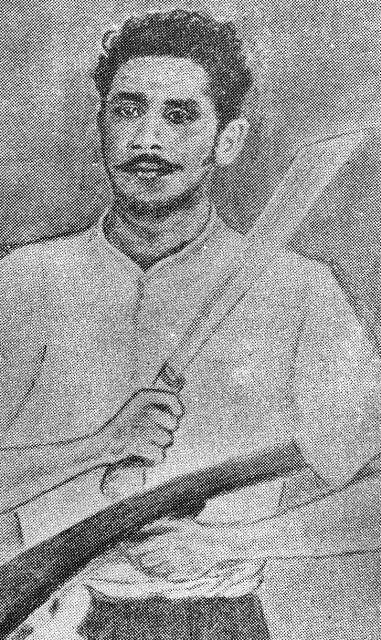Pattimura, whose full name was Thomas Matulessy, was a national hero of Indonesia. He was born in Haria village on the island of Saparua, part of the Maluku Islands in the Dutch East Indies, in 1783. Pattimura played a significant role in the resistance against Dutch colonial rule and became a symbol of the struggle for independence in the region.
During the late 18th and early 19th centuries, the Dutch East Indies, under the control of the Dutch East India Company, imposed heavy taxes and forced labor on the local population. The oppressive policies sparked discontent and resistance among the native people, and Pattimura emerged as a prominent leader in the movement against Dutch colonialism.
In 1816, Pattimura led a rebellion known as the Pattimura Rebellion or the Great War (Perang Besar) against the Dutch colonial authorities. The rebellion was primarily centered in the Maluku Islands, where Pattimura and his followers aimed to overthrow Dutch rule and establish an independent state.
Pattimura's rebellion began on May 15, 1817, when his forces attacked the Dutch garrison in Saparua. Despite being outnumbered and lacking sophisticated weaponry, Pattimura and his followers fought fiercely against the Dutch forces. The rebellion spread to other islands in the region, gaining support from local communities who were also eager to resist Dutch oppression.
However, the Dutch colonial authorities quickly mobilized their forces and launched a brutal counteroffensive against the rebels. After months of fighting, Pattimura and his followers were eventually overwhelmed by the superior Dutch military might. Pattimura was captured, and in December 1817, he was executed by the Dutch through hanging in Ambon, the capital of the Maluku Islands.
Pattimura's rebellion, though ultimately unsuccessful, left a lasting impact on the struggle for Indonesian independence. His bravery and sacrifice inspired subsequent generations of Indonesians to resist colonial rule and fight for their rights and freedom. Today, Pattimura is revered as a national hero in Indonesia, and his legacy serves as a symbol of resistance and perseverance in the face of oppression. Numerous statues, monuments, and institutions bear his name, honoring his role in the country's history.
After Pattimura's execution, the rebellion he led began to fade, but the spirit of resistance against Dutch colonialism remained alive among the people in Maluku and throughout Indonesia. Eventually, the struggle for Indonesian independence bore fruit in 1945 when the proclamation of Indonesian independence was announced.
Pattimura became a symbol of resistance and national spirit in the fight against Dutch colonialism. His heroism was commemorated in various ways, including statues, paintings, and the naming of streets, schools, and institutions after him in different regions of Indonesia.
In addition to being a symbol of resistance, Pattimura also inspired the struggle of the Maluku ethnic group in the subsequent years. The Maluku people continued to play a significant role in the fight for Indonesian independence, and their contributions were recognized and celebrated.
Pattimura's legacy serves as a reminder of the courage and determination displayed by those who fought for freedom and independence in Indonesia. His story continues to inspire Indonesians to uphold the values of justice, equality, and national pride.




